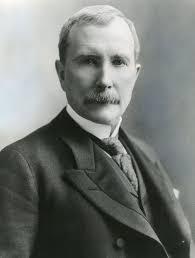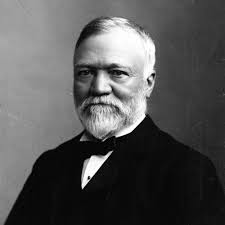Climate of Contempt bemoans the way ideological and social media encourages and supercharges the human instinct to make attribution errors in politics. These errors involve a number of logical fallacies I describe in the book, and they often take the form of assigning blame to the wrong person or to the broader group of which the right person is a member.
So, with that in mind, let’s talk about billionaires.
Economic Inequality
Just about every measure of economic inequality shows its steady increase in the United States since the last quarter of the 20th century. The United States now has roughly 800 billionaires, up from 66 in 1990.[i] And the share of wealth controlled by the richest 1 percent has grown from about 23% to about 30% over that same period.
For all their wealth, until recently today’s billionaires paled by comparison to the Robber Barons of the Gilded Age, at least when measuring their wealth against national GDP. But that has changed. Elon Musk has leapfrogged John D. Rockefeller to top that list, though (except for Bill Gates) early 20th c. industrialists still dominate its upper reaches. But tech billionaires have been gaining on the Robber Barons over the last two decades.
The massive accumulations of wealth in the hands of a few naturally rankles, especially when accompanied by the claim that the U.S. cannot afford the kind of investments in infrastructure, public health, environmental protection and a social safety net that most other first world nations make. Stark inequality is one of the drivers of populism – “every billionaire a policy failure” – and generates hilarious parodies like this one.
Economists disagree about the key drivers of inequality, but it coincided with the late 20th c. rise to dominance in policymaking circles of ideas from public choice economics.[ii] These ideas included increasing faith in the self-correcting nature of free markets, lower marginal tax rates, and skepticism toward government regulation. When Ronald Reagan assumed the presidency in 1981, the marginal tax rate on the highest earners was 70%; when he left office it was 28%. (It had reached more than 90% during the Eisenhower era.) The conservative economic theories embraced by Reagan, Margaret Thatcher and others fed deregulation of the utilities, finance, and transportation industries, but they found their fullest flowering in antitrust law.
Antitrust and Competition
For much of its first century, antitrust law treated big firms’ use of their market power to destroy smaller competitors as illegal. John D. Rockefeller’s Standard Oil used its leverage over railroads and retailers to force other producers of oil products to sell their companies to him in exchange for Standard Oil stock. In response to his bullying, the Supreme Court ordered the company broken up into 34 parts in 1911.[iii]
Eight decades later, however, federal courts declined to break up Bill Gates’ Microsoft Corporation, despite finding that the company had engaged in almost identical forms of bullying. Why? Because in the intervening period many antitrust enforcers and judges had become convinced that the market will discipline tech monopolies that abuse their monopoly power. This modern era of light-touch antitrust enforcement has coincided with increased market concentration in most industries, yielding (according to one NYU study) “higher profit margins, positive abnormal stock returns, and more profitable M&A deals, suggesting that market power is becoming an important source of value.”
Interestingly, many (most?) of the tech billionaires whose companies rose to dominance during this time identified with the ideological left, professing progressive ideals (including a dedication to clean energy) and other social aspirations summed up by Google’s original “don’t be evil” motto. Indeed, as I show in Appendix D of my book, as recently as 2022 political giving by those on the Forbes list of the 25 wealthiest Americans was fairly evenly split between the two parties. But while Kamala Harris did very well with super-rich donors in the 2024 election cycle, the wealthiest tech billionaires flocked to Trump.
The reason may have to do with antitrust law. And bullying. And the art of the deal shakedown.
Recovering Older Notions of Market Power Abuses
When I taught the U.S. v. Microsoft in class this year some students were surprised by the facts of the case; one reacted by saying, “Bill Gates must have a great P.R. staff.” But the trajectory Gates’ career has followed mirrors those of Rockefeller, Andrew Carnegie and many of the 20th c. Robber Barons:
Step 1: Grow to dominance by innovating and persevering.
Step 2: Use monopoly power to destroy competition and gain unfair advantages in new markets.
Step 3: Retire and spend decades mastering the art of strategic philanthropy.
Today’s dominant firms, like Google and Amazon, are still in Step 2. They are using their monopoly control of one product market to (a) gain unfair advantages in related markets, and (b) continue to crush those who would compete in the market they dominate.
Biden Administration antitrust enforcers, particularly Federal Trade Commission head Lina Khan, saw these kinds of activities the way early 20th century enforcers did: namely, as abuses of monopoly power. The Biden Administration filed multiple suits against Google and won some victories (see here and here). A similar suit against Amazon is set to go to trial in 2026.[iv] So the sudden embrace of Trump by tech billionaires – after decades of mostly left-leaning political affiliations – may represent little more than an attempt to secure a return to light-touch antitrust enforcement for their companies.
But it is also worth noting that the anti-competitive methods employed by Standard Oil, Microsoft, Google and Amazon bear a striking resemblance to the way Donald Trump has done business — as a real estate developer and as president. They are all essentially shakedowns of the weak by the strong: the use of the stronger party’s leverage to take from the weak something that the stronger party could not have acquired by fairer means.
For Rockefeller and Gates the shakedown involved the use of leverage over third parties to punish competitors. For Google and Amazon, the shakedown is more direct. They demand business information from those who need access to their online platforms – i.e., to secure favorable positions in Google search results or Amazon Marketplace – then use that information to start competing businesses in the most promising new online markets. Then they favor their affiliated new businesses on their platforms in order to take market share away from the innovative firms whose ideas they admired.
Donald Trump’s real estate business never acquired that kind of market power, but he did routinely create economic leverage with contractors and trades people by refusing to pay them, using that leverage to “renegotiate” a better price. And as president he has secured concessions from universities, law firms and others using the leverage afforded him as head of the executive branch (and of a congressional party that he has cowed into submissiveness, for reasons explained in this space many times before).
All of these billionaires believe that their particular forms of bullying and shakedown were/are justified, and sometimes their arguments win the day. Andrew Carnegie’s U.S. Steel Corp. won its antitrust case in the Supreme Court. And despite multiple bankruptcies and hundreds of contract dispute lawsuits, Trump-the-Brand has emerged more or less intact.
Today’s tech billionaires may see in Trump someone who understands their economic bullying the way they do. Perhaps they see the world as a dog-eat-dog place where those who do not destroy their enemies will be destroyed themselves. Maybe they are simply rationalizing their massive riches in a world where so many have so much less. (The psychology of tech billionaires, and of Trump, is probably a far more complicated subject than can fit in this space.) But it remains to be seen whether their Trump sycophancy will pay off. As of this writing many of the FTC suits against tech firms remain active.
Conclusion
I don’t know the precise intended meaning of the slogan “every billionaire is a policy failure.” Perhaps it is meant as shorthand for the following logic:
- Billionaires have earned unimaginable wealth in the shelter of American legal and governmental institutions. Under that umbrella they enjoy secure property rights, the enforcement of contracts, physical security, stable capital markets (until the last few months), and clean, pleasant places to live. Some of them (Andrew Carnegie, Elon Musk and Sergei Bryn, e.g.) migrated to the U.S. from elsewhere to enjoy that stable economic environment.
- Having benefited from the economic security that our liberal democracy affords entrepreneurs, billionaires have a moral obligation to “give back” – not just through private philanthropy, but through taxes paid to the very government whose statutes, courts, police, military, and regulators provide that security.
- And because billionaires vanquish competitors along the way, others lose (economically) so that they might win. Therefore, they ought to pay much more in taxes as a share of income (or wealth, if they hide their income) to finance the services that are the foundation of their success. That is, tax rates ought to be much more progressive than they are now.
If that slogan means these things, great. I agree. If it is instead a rallying cry for the kind of intellectually sloppy attribution errors that feed feelings of contempt toward a class of people, then count me out because some of those people are allies who subscribe to all or most of the logic above.
If we still want to speak precisely and accurately about billionaires and politics, we ought to acknowledge that the picture is complicated. Many billionaires supported Kamala Harris and continue to support Democrats. Many believe the superrich should pay more in taxes. Many care about climate change and spend lavishly to try to mitigate it. If left populism morphs into something more revolutionary or anti-capitalistic than the logic contained in the numbered propositions above, those allies may no longer be allies.
Being precise and accurate isn’t inconsistent with being horrified with the current attack on our political-economic institutions, or with “fighting back.” To the contrary, it’s part of how one can fight back effectively. – David Spence
———————–
[i] For context, real GDP roughly tripled over that same period, and the value of a 1980 dollar was $3.88 in 2024.
[ii] I summarize these effects in chapter 2 of Climate of Contempt.
[iii] There are many excellent accounts of this history. I recommend those found in Ron Chernow’s Titan and Daniel Yergin’s The Prize. But Wikipedia offers a shorter version.
[iv] The FTC also brought an enforcement action against Zuckerberg’s Meta.






